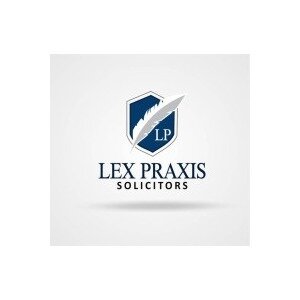Best Aviation Lawyers in Calabar
Share your needs with us, get contacted by law firms.
Free. Takes 2 min.
List of the best lawyers in Calabar, Nigeria
About Aviation Law in Calabar, Nigeria:
Aviation law in Calabar, Nigeria is governed by both national and international laws. The regulatory body responsible for this legal domain is the Nigerian Civil Aviation Authority (NCAA), which issues guidelines for the operation and management of aircraft, airports, and aviation services within the country. The NCAA, along with the Federal Airports Authority of Nigeria (FAAN), oversee aviation operations in Calabar, a city known for its tranquil environment and popular tourism venues.
Why You May Need a Lawyer:
Legal assistance may be required in several instances such as acquiring licenses for operating airlines or drones, settling disputes arising from airline operations, litigating incidences of air accidents and casualties, obtaining compensations for breech of aviation contract, defending against regulatory violations, and consulting for compliance with international aviation agreements. Experienced aviation lawyers can successfully navigate the complexities of this specialized field and offer valuable advice.
Local Laws Overview:
Aviation laws in Calabar, as in the rest of Nigeria, are primarily governed by the Civil Aviation Act. The Act encompasses regulations for aircraft registration and marking, air operator certification, airport certification, enforcement procedures, and more. Additionally, these laws incorporate international provisions as Nigeria is a member of the International Civil Aviation Organization (ICAO), thus adhering to its standards and recommended practices.
Frequently Asked Questions:
1. What is the main body regulating aviation in Calabar, Nigeria?
The Nigerian Civil Aviation Authority (NCAA) is the key regulator of aviation throughout Nigeria, including Calabar.
2. Can I operate a drone in Calabar, Nigeria?
Yes, but the drone must be registered and the operator must possess a valid Remotely Piloted Air Systems certification issued by the NCAA.
3. How can I seek redress if my rights as an air passenger in Calabar are violated?
If your rights as an air passenger are infringed upon, you may seek legal representation to pursue a suit for compensation.
4. Can a foreign airline operator start an airline in Calabar, Nigeria?
Yes. However, they must fulfill the requirements and follow the procedures set out in the Civil Aviation Act.
5. What are the local laws governing Air Accidents Investigation in Calabar, Nigeria?
Air accident investigations in Calabar, Nigeria, are governed by the Civil Aviation (Investigation of Air Accidents and Incidents) Regulations. The Bureau of Air Accidents Investigation, under the auspices of the Minister of Aviation, conducts these investigations.
Additional Resources:
You can access comprehensive information on the NCAA website or consult the Nigerian Civil Aviation Regulations (Nig. CARs). Law firms specializing in aviation law and the local chapter of the International Air Transport Association (IATA) are other informative resources you may explore.
Next Steps:
If you need legal assistance relating to aviation in Calabar, it's pivotal to engage a specialized aviation lawyer. Ensure they have a thorough understanding of both local and international aviation laws and a proven track record in this field. You could also contact the Nigerian Bar Association for referrals or use online legal service platforms for assistance.
Lawzana helps you find the best lawyers and law firms in Calabar through a curated and pre-screened list of qualified legal professionals. Our platform offers rankings and detailed profiles of attorneys and law firms, allowing you to compare based on practice areas, including Aviation, experience, and client feedback.
Each profile includes a description of the firm's areas of practice, client reviews, team members and partners, year of establishment, spoken languages, office locations, contact information, social media presence, and any published articles or resources. Most firms on our platform speak English and are experienced in both local and international legal matters.
Get a quote from top-rated law firms in Calabar, Nigeria — quickly, securely, and without unnecessary hassle.
Disclaimer:
The information provided on this page is for general informational purposes only and does not constitute legal advice. While we strive to ensure the accuracy and relevance of the content, legal information may change over time, and interpretations of the law can vary. You should always consult with a qualified legal professional for advice specific to your situation.
We disclaim all liability for actions taken or not taken based on the content of this page. If you believe any information is incorrect or outdated, please contact us, and we will review and update it where appropriate.










